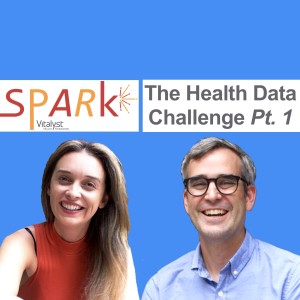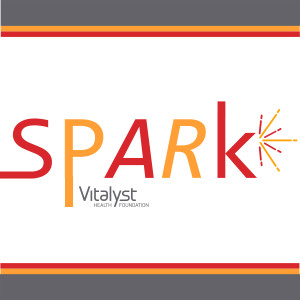
The conversation we’re entering into today is both new and one we’ve been having together for a long time on this podcast. It’s a conversation about how to understand what makes community health more possible – and conversely what makes it far less possible.
Henry David Thoreau – yes, the Walden guy – once wrote “not that the story need be long, but it will take a long while to make it short.” Thoreau, while sitting on the shore of a secluded pond in the 1800s, clearly had the story of 21st Century health data in mind when he wrote this. OK, maybe he didn’t, but that quote fits the quest that Vitalyst has been on to share actionable, and equitable, data insights on community health so well that we’re going to repeat it: “not that the story needs to be long, but it will take a long while to make it short.”
Here we are, in 2020, when it seems like everyone is an amateur epidemiologist thanks to COVID-19, yet we all still struggle to find accessible, understandable data; we struggle when that data contradicts dominant narratives; and we struggle to reconcile what the numbers can tell us about how communities can live better and thrive. Well, as the stoic philosophers like to say, the obstacle may be daunting, but the obstacle is the way. So today, we have two great guests who are involved in the health data struggle every day, and who lead a company that is helping Vitalyst, and six of Arizona’s County Health Departments, work through data obstacles so that we all can make better sense of the data and help formulate actions and solutions for communities to thrive.
So let’s get to it. It’s time to dig more deeply into the fascinating trials and tribulations of public health data, the rise of a series of local and statewide health dashboards that you can access to learn much more about what is affecting community health, and how we all can build a more insightful, actionable, better understanding of health historically, presently, and in the years to come.
More Episodes
 2021-01-27
2021-01-27
 102
102
 2021-01-19
2021-01-19
 91
91
 2021-01-12
2021-01-12
 123
123
 2021-01-05
2021-01-05
 102
102
 2020-12-22
2020-12-22
 91
91
 2020-12-08
2020-12-08
 87
87
 2020-11-24
2020-11-24
 72
72
 2020-11-10
2020-11-10
 101
101
 2020-11-05
2020-11-05
 101
101
 2020-10-28
2020-10-28
 83
83
 2020-10-21
2020-10-21
 95
95
 2020-10-14
2020-10-14
 115
115
 2020-10-08
2020-10-08
 130
130
 2020-09-29
2020-09-29
 107
107
 2020-09-23
2020-09-23
 77
77
 2020-09-08
2020-09-08
 163
163
 2020-09-01
2020-09-01
 105
105
 2020-08-18
2020-08-18
 131
131
 2020-08-11
2020-08-11
 94
94
Create your
podcast in
minutes
- Full-featured podcast site
- Unlimited storage and bandwidth
- Comprehensive podcast stats
- Distribute to Apple Podcasts, Spotify, and more
- Make money with your podcast
It is Free
- Privacy Policy
- Cookie Policy
- Terms of Use
- Consent Preferences
- Copyright © 2015-2024 Podbean.com






